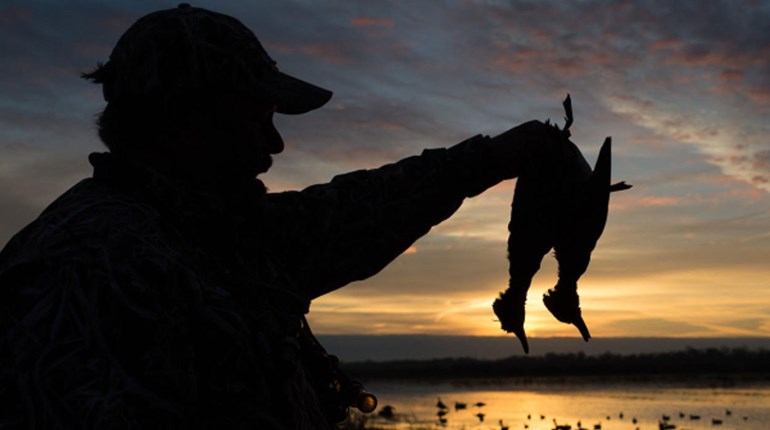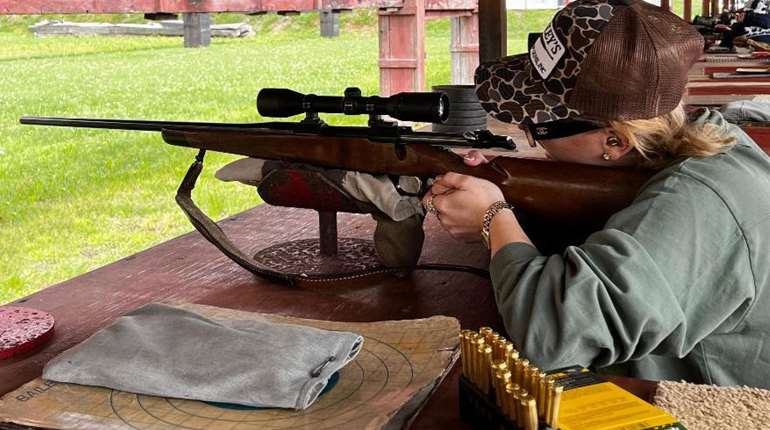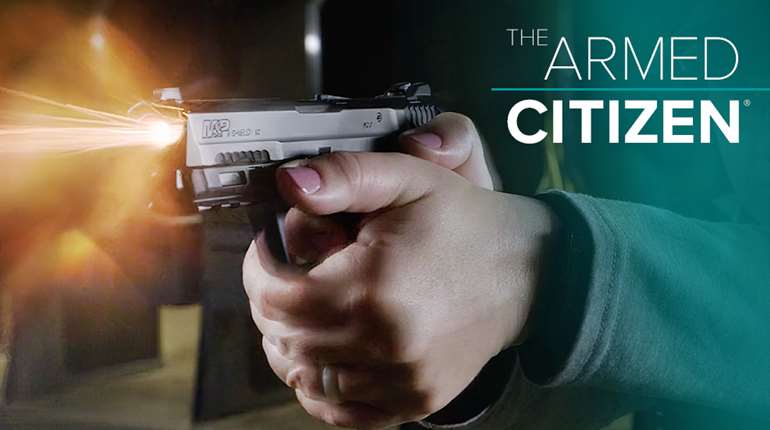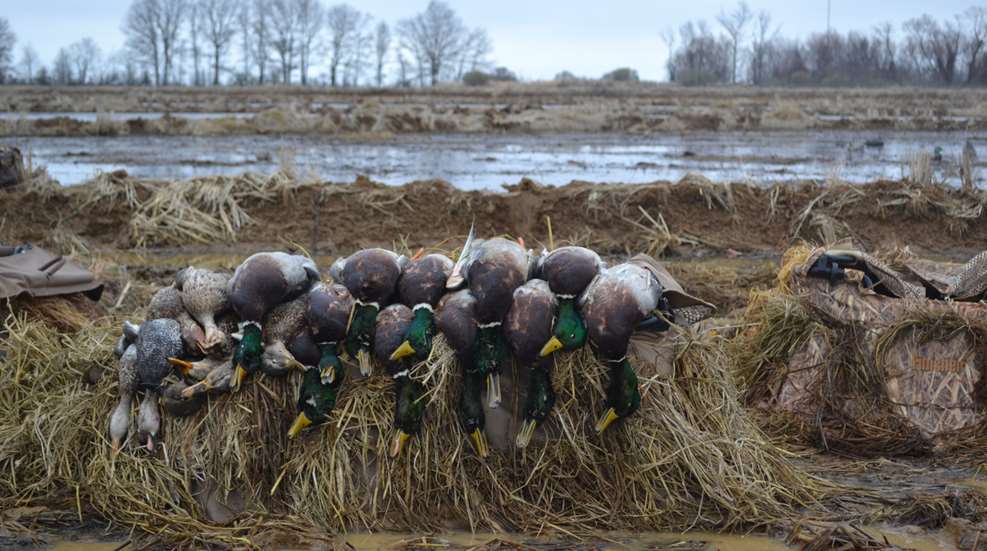
Ducks are one of my favorite things to hunt, mostly because waterfowling is so much more social and provides more action than big-game hunting. It’s got the call-and-response fun of turkey hunting but offers a lot more shooting, and depending on your setup, you can drink coffee and eat (or even cook) breakfast while you’re hunting—what’s not to love?
Having hunted ducks and geese all over the U.S. and Canada, I’ve had my share of terrific experiences, mediocre days, and just plain lousy moments. Most of those not-so-great days were because I or someone in my hunting party made one of these mistakes.
Taking Safety for Granted
Waterfowling is a safe activity, but there are rules to follow. Wear your wader belt and don’t wade too deep, have a flotation device if you’re traveling by boat, mind your shooting lanes, and of course, follow all the standard rules of firearms safety. I once hunted out of a metal pit blind in a flooded rice field—there were five or six of us hiding in a big metal box underground. It was comfortable, but our host warned us to mind our muzzles, noting that straight up was the only safe direction, because “If a gun goes off in this blind, we all go to the hospital.” A firearms safety violation is the worst way to ruin a duck hunt.
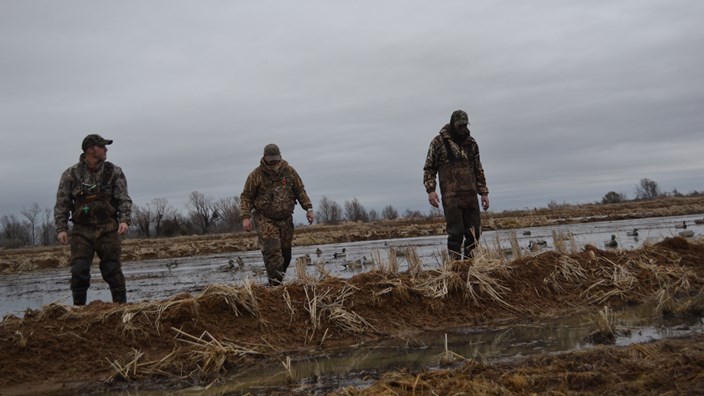
You also need to wear eye and ear protection for your safety. I have documented 30 percent hearing loss in my left ear, and I attribute a huge chunk of the trouble to that same day in the metal pit blind when a bird came in on the opposite side from where I was sitting. I stayed seated while the shooter on the other side stood up to drop the duck, and the sound of the shot reverberated through that metal box and hit my unprotected ears like a ton of bricks. My head rang for days. Protect your ears (and stand up for every shot in a pit, even if you’re not shooting).
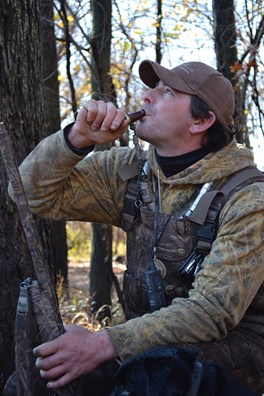
Call Too Much or Too Little
If you are duck hunting on what waterfowlers call The X—that different-every-day spot where the ducks just naturally want to be—you might not need to call much at all to see plenty of shooting action. If you’re not on The X, however, you’ll be trying to convince birds to land in your spot instead of their preferred location, and you’ll usually use some decoys and a duck call to do that. But there’s absolutely such a thing as over-calling or under-calling, and both are a sure way to let real ducks know that the “birds” on the ground are fakes.
When and how much you should call is a skill you’ll pick up over time through trial and error, but you’ll learn by watching how the ducks react to your call. They’ll tell you by their behavior if they like what they’re hearing. When in doubt, you’re probably better off to err on the side of calling too little rather than calling too much, unless the birds are leaving and don’t seem to be coming back. Then let ‘er rip, because you have nothing to lose.
Fail to Dress the Part
Most duck hunting takes place in cold weather, and because you’re in or on the water and everything tends to get damp or wet, you’ve got to be prepared with clothing and gear that keeps you warm and dry. The coldest I’ve ever been is on a duck hunt where I wore five or six layers of cotton shirts under my neoprene waders, because I was a new hunter and that’s all I had.
There’s a saying in hunting that “cotton kills,” and it’s true. When you work up the tiniest sweat, cotton absorbs your body’s moisture and holds it next to your skin for hours. As soon as you stop moving and your body temp cools down, that clammy damp cotton will turn chilly and make you much colder. Try a good synthetic or wool base layer next to your skin to wick moisture, and add additional layers that will breathe.
Gloves are tricky, because they need to be waterproof. I’ve never found a pair of waterproof gloves that fit my tiny hands, allow me to manipulate my gun and keep me warm, so I wear a fleece muff around my waist and stuff it with chemical hand warmers. I wear a glove on my left (non-dominant) hand and keep my shooting hand ungloved, stuffed inside the muff when things are idle.
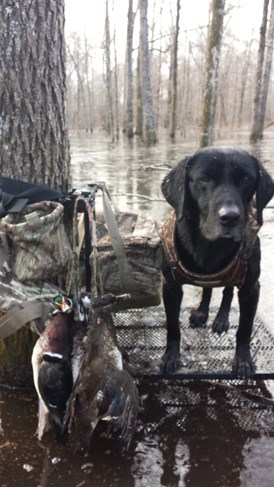
Let the Dog Run Wild
A dog that rocks the boat, paces in the pit, wiggles out of his blind in the field or refuses to follow his handler’s every command makes everyone in the hunting party unhappy. It can easily become a safety hazard as well. A well-trained dog is one of the most enjoyable parts of waterfowling, but if yours isn’t ready for the big leagues yet, keep him leashed or leave him at home.
Be Too Eager to Shoot
In duck hunting, your party will designate a shot-caller—the person whose job it is to decide when everyone shoots. The shot-caller will holler “Now!” or “Take ‘em!” or whatever her preferred exclamation is, and then everyone who has a clear, safe shot is free to shoot at the birds that are coming in. The shot caller is waiting until the birds are close enough, and he or she might even let some birds land if a larger group is coming in right behind them.
Don’t get antsy and shoot before you’re told to, even if you think it’s the right time. Shooting before the shot is called ruins everyone else’s opportunity at the birds, because you will scare them away before the group gets a chance to shoot. I’ve had more than one newbie hunter get excited (hey, it happens) and take a shot on a single bird while dozens circled overhead, just about to land. I’ve also seen a new hunter, whose only prior exposure to shotguns was shooting competition with slugs, take a shot at some way-too-high ducks she had no hope of hitting. She didn’t know any better, but those birds kept on flying, ruining our chance to call them in and also driving them away from any other hunters in the area. Shooting at birds that are too high is called sky-busting, and it’s a major waterfowling no-no. The shot-caller will be judging the distance and won’t call the shot until they birds are within range.
Wait until the shot-caller says it’s time to shoot before you make a move. She’s taking your entire hunting party into account when she makes the decision, trying to give everyone the best possible chance based on how the birds are working.













